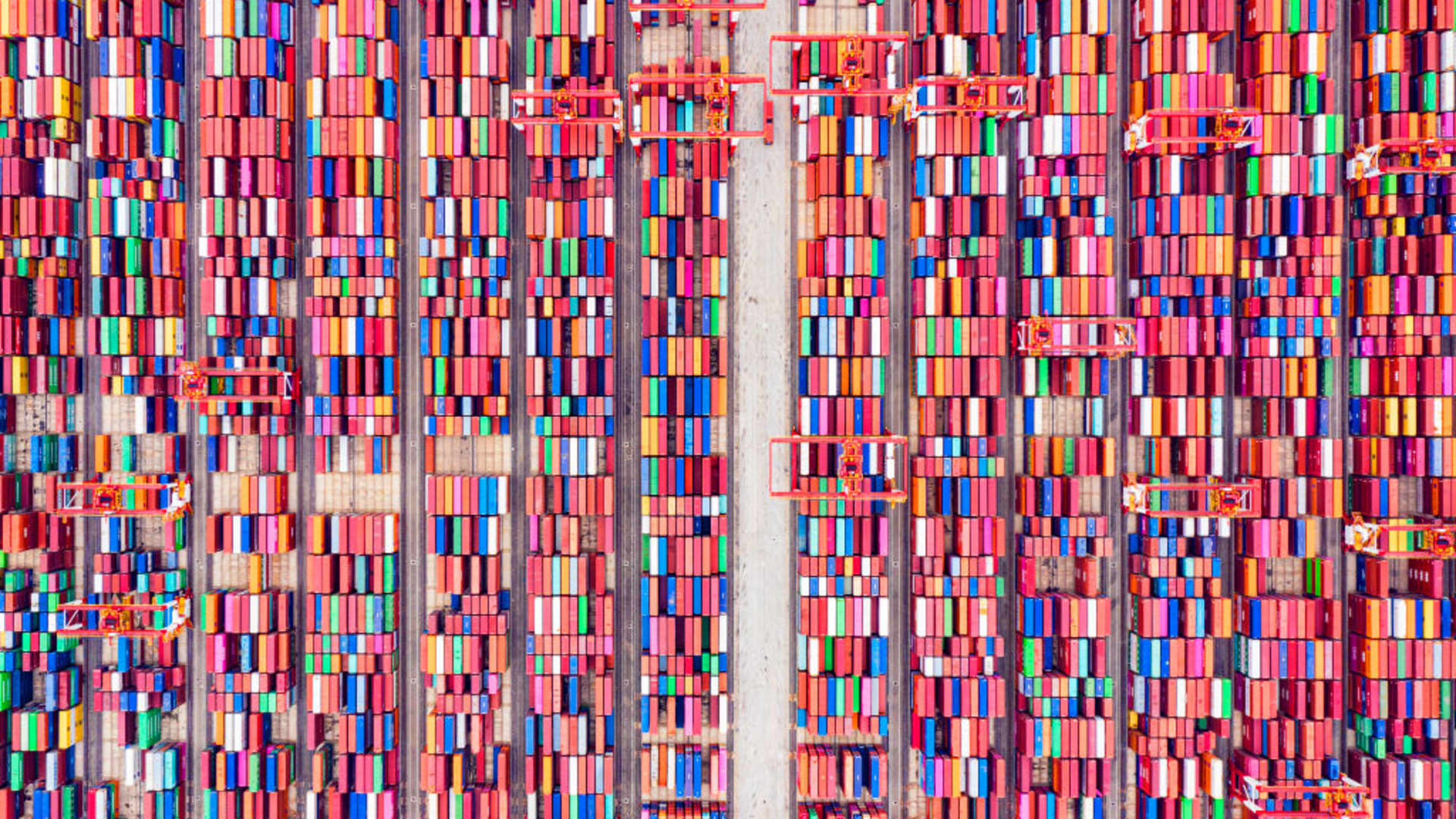
Aerial view of shipping containers sitting stacked at Yangshan Deepwater Port, the world’s biggest automated container terminal, on May 21, 2021 in Shanghai, China.
Vcg | Visual China Group | Getty Images
The recent turmoil surrounding the banking sector in the U.S. and Europe has highlighted China as a “relative safe haven” this year, economists at Citi said in a Thursday note.
Investor sentiment on China was weighed down last year by Covid controls and regulatory uncertainty. Now those controls have ended and policymakers have sent clearer signals on regulation.
“The activity momentum could pick up further from here, with auto sales improving and property sales stabilizing,” the Citi economists said.
They said China could be an outlier among its global peers to see accelerated expansion, giving the country a “hedge” for growth while economies in the U.S. and Europe face heightened risk of financial disruptions.
“We have long been discussing our view that China can be a major growth hedge this year – if anything, recent global banking stresses perhaps have strengthened this thesis,” a team led by Citi’s Chief China economist Xiangrong Yu said.
Policy support
“China could at least be a relative ‘safe haven’ given its growth premium, financial soundness, policy discipline and the new political economy cycle,” Citi economists said.
They wrote that the latest actions such as the People’s Bank of China‘s decision to cut its reserve requirement ratio showed “reassurance of policy support amid global volatilities.”
The RRR is a measure of how much cash banks in China need to have on hand. The PBOC said effective March 27, it would reduce the ratio for most banks by 25 basis points. Since the pandemic started, mainland China has kept relatively easy monetary policy while not announcing major stimulus packages — such as large cash handouts to consumers.
“Perhaps taking lessons from what the U.S. has been going through in recent years, the PBoC has been prudent in easing even during the pandemic era and may quickly switch to a wait-and-see mode once growth is back on track,” the economists at Citi wrote.

They also noted China’s government restructuring earlier this month is an example of its efforts to ease financial risks.
“This year, Beijing is determined to keep local government debt risks at bay, for which we believe it has sufficient tools,” the economists wrote.
Yuan to strengthen
As China’s GDP is expected to show relatively outstanding growth this year, economists also see an upside to its currency – Citi expects to see the onshore yuan strengthen to 6.6 against the U.S. dollar as soon as September. That would bring the currency to its strongest levels since April last year.
“With the unintended and undesirable from aggressive interest rate hikes surfacing abroad, capital inflows into China could resume after the reopen trade if the recovery thesis plays out and political rerating is steadily ongoing,” Citi economists wrote.
“We still believe the party of capital inflows to China is not over yet and expect USDCNY to move to 6.6 in 6-12 months,” they said.
That view is further supported by a falling greenback: U.S. Fed Chair Jerome Powell on Wednesday indicated that rate hikes are near an end, with the U.S. dollar index falling further on Thursday to a low of 101.915 overnight. The index is down roughly 1.4% week-to-date.
‘Net-positive’ regulatory environment
The landscape in China is very different from what’s happening in the U.S. and other countries as a result of rapid rate hikes, Lawrence Lok, Chief Financial Officer of wealth manager Hywin told CNBC in a phone interview.
As for regulatory developments, he said his firm sees a clear effort by Beijing to increase foreign financial institutions’ ability to participate in the local market.
“Net-net, the regulatory environment is a net positive for the financial sector in China right now,” Lok said.
“Maybe it is not so friendly for some sectors like high tech, but I think [for] the financial sector we are quite positive,” he said.
Hywin had more than 36,700 active clients as of the end of December, and the equivalent of more than $1 billion in assets under management.
– CNBC’s Gina Francolla contributed to the report.
